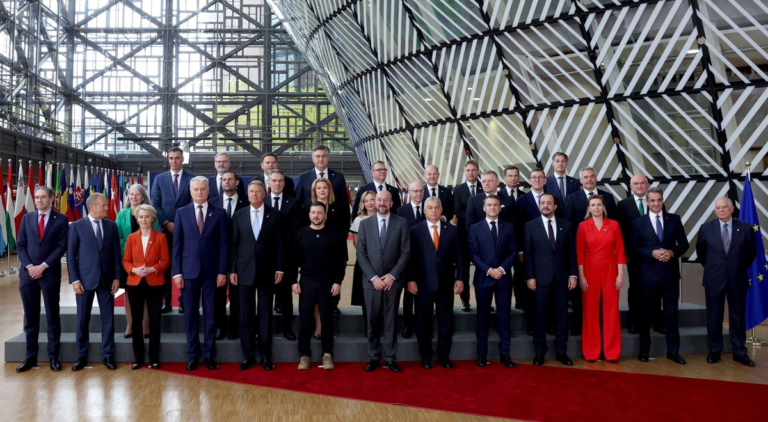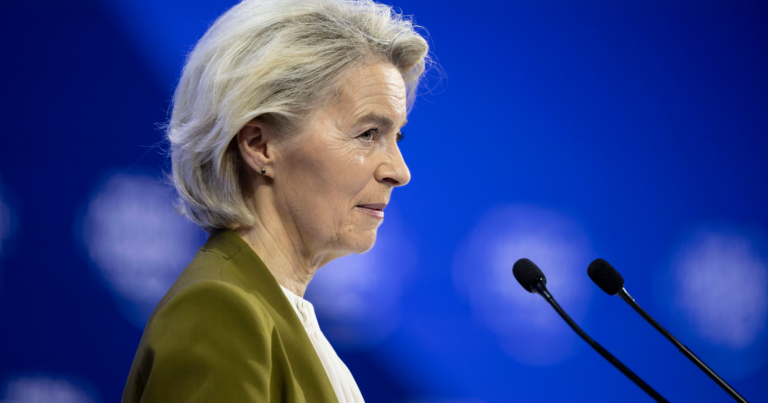European Commission President Ursula von der Leyen made her ninth visit to Kyiv on February 24, 2025, marking the third anniversary of Russia’s full-scale invasion of Ukraine. This visit underscores the European Union’s unwavering support for Ukraine amid evolving geopolitical dynamics.

(President of Ukraine Volodymyr Zelenskyy met with President of the European Commission Ursula von der Leyen, who is on a visit to Ukraine)
European Solidarity and Financial Support
During her visit, von der Leyen announced a €3.5 billion financial aid package aimed at bolstering Ukraine’s economy and defense capabilities. This funding serves as an advance on the larger €50 billion “Ukraine Facility” established by the EU in early 2024, designed to provide sustained support for Ukraine’s reconstruction and resilience. The immediate injection of funds will assist in stabilizing Ukraine’s budget and facilitate the procurement of military equipment from domestic industries.
Von der Leyen emphasized the urgency of accelerating the delivery of weapons and ammunition to Ukraine, stating, “We must speed up the immediate delivery of weapons and ammunition. And this will be at the heart of our work in the coming weeks.” She also highlighted the EU’s commitment to integrating Ukraine and Moldova into the bloc’s electricity market by the end of the year, further strengthening regional energy security.
Diplomatic Engagement Amid US-Russia Negotiations

(Donald Trumps negotations with Vladimir Putin)
The visit coincides with significant diplomatic developments, notably the United States’ efforts to initiate bilateral peace negotiations with Russia. President Donald Trump’s recent push for a swift resolution to the conflict has raised concerns among European allies about the potential implications for regional security and the exclusion of Ukraine from critical discussions. Trump’s remarks, including referring to Ukrainian President Volodymyr Zelenskyy as a “dictator without elections,” have further strained transatlantic relations and cast doubt on the direction of US foreign policy.
In response, European leaders have intensified diplomatic efforts to ensure that any peace negotiations consider the interests of Ukraine and the broader European community. French President Emmanuel Macron is scheduled to meet with Trump in Washington, and an emergency summit of all 27 EU leaders is planned for March 6 to address the unfolding situation. Von der Leyen has indicated her intention to present a comprehensive plan to enhance the EU’s defense capabilities, aiming to support Ukraine and reinforce the continent’s security infrastructure.
Ukraine’s Stance and Regional Implications
President Zelenskyy has expressed a willingness to step down if it would lead to peace and secure NATO membership for Ukraine. He stated, “I’m focused on Ukraine’s security today, not in 20 years, and I have no intention of staying in power for a decade.” This position reflects Ukraine’s prioritization of national security and sovereignty in the face of ongoing aggression.
The EU’s steadfast support, exemplified by von der Leyen’s visit and the substantial financial aid package, reinforces the bloc’s commitment to Ukraine’s sovereignty and territorial integrity. As diplomatic efforts continue, the collaboration between European nations and Ukraine remains crucial in navigating the complex geopolitical landscape and striving for a peaceful resolution that upholds democratic values and regional stability.


